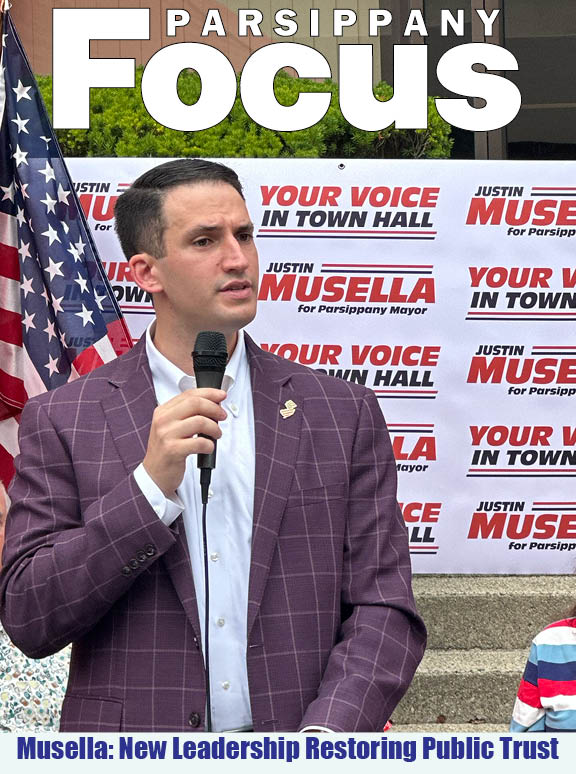Dear Editor:

Editors Note: This letter was presented at the Parsippany-Troy Hills Council meeting on November 23.
First, I want to make it clear that my comments refer only to the PILOTs at 2 and 3 Campus Drive, because they will add students to Parsippany’s school system.
Prior to the last meeting’s public session, the mayor and the developer’s attorney, Mr. Inglesino, delivered what can only be described as an all-out PILOT sales pitch. The sales pitch contained the expected embellishment of a PILOT’s positive points while omitting any points that could be interpreted as negative. It also included a generous amount of scare tactics.
Leading off was the mayor, who brought up two points that I would categorize as unsubstantiated. First, the mayor stated emphatically that these PILOTs were necessary because of the rise in construction costs and interest rates. The big problem here is that 2 and 3 Campus Drive were purchased only a month ago. During that short period of time, construction costs have remained about the same and interest rates have actually gone down. So, the mayor’s rationale for why these PILOTs are necessary is not valid, and for that reason alone, the PILOT ordinances should be withdrawn tonight.
Next, the mayor claimed that if the PILOTs are not granted, the projects will not get done, Parsippany will lose tax revenue, and property taxes will go through the roof. That statement is a speculation, a mislead, and a scare tactic all rolled into one. The possibility that Avalon Bay, one of the largest REITs in the country, bought the property on the gamble of obtaining a PILOT, and would walk away from their investments at 2 and 3 Campus Drive after owning them for only one month is very small. And the mayor knows full well that your taxes will not skyrocket even if Avalon Bay pulls out. Because of the 2% cap law, you can count on property taxes going up between 2 and 3 ½% with or without a PILOT.
Mr. Inglesino’s presentation was professional, factual, and informative, but it was also incomplete. Here are just some of the more important details that were left out.
- Mr. Inglesino stressed that the school district will still receive a share of the land taxes if a PILOT is granted. What he left out is that the school district currently receives a share of the land tax, and will continue to receive that same amount whether a PILOT is granted or not. The school district gets no additional money from the PILOT, but it will have to pay for additional students.
- Mr. Inglesino made absolutely no mention that the developer would be receiving a Land Tax Credit (LTC) under the PILOT. According to the financial charts, Parsippany will rebate approximately 75% of the Land Tax. Avalon Bay is already getting a sweetheart deal on the Building Improvements at Campus Drive, so why does the company also need a rebate on the land taxes, and how does that rebate affect what the school district receives?
- Mr. Inglesino also failed to disclose that under the proposed PILOT, Parsippany will forfeit $47 million in property tax dollars over 30 years, a number easily derived from totals that appear on the financial sheets. What is Parsippany getting for that $47 million, and is the mayor, the council, and the public comfortable with that price tag?
- Next, Mr. Inglesino’s statement that the school district receives all of the budgeted money that it is entitled to, is entirely true. But there were no details about what happens after a PILOT kicks in. Let’s say that the 410 apartment units at Campus Drive add 50 students to the schools. We already know that the PILOT is not contributing anything extra for the approximately $1 million cost of educating these additional students. But somebody has to pay for them since their costs will be included in the school district’s next budget. As Mr. Inglesino stated, the town must pay for everything that the school district asks for, but that money only comes from properties in the tax-ratable base, which includes every homeowner, but not the PILOTed properties on Campus Drive. In short, the Parsippany taxpayer must absorb all of the additional educational costs that the PILOTed properties are exempted from.
- Mr. Inglesino also neglected to tell the audience that Parsippany will most likely have to pay out more money to provide municipal and educational services than it will receive in PILOT payments. For example, according to the financial sheet handouts, in year 1, Parsippany will receive a $1 million PILOT payment but will have to spend $1.7 million to provide municipal services and to educate 50 additional students. No savvy businessman or council member enters an agreement knowing that it will lose money. Rather than operating at a deficit under the PILOT, the township would be better off financially if nothing were built on the property.
In certain cases, commercial PILOTs may be warranted, but the more you learn about residential PILOTs, the worse they get. Thank you.
Bob Venezia
















